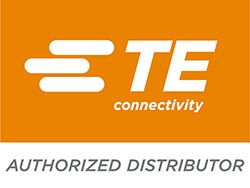TE Connectivity NEOHM SMA-Q 274kΩ, 0204 (1005M) Thin Film SMD Resistor 1% 0.4W
- RS Stock No.:
- 590-368
- Mfr. Part No.:
- SMA-Q0204FTDX274K
- Brand:
- TE Connectivity

Bulk discount available
Subtotal (1 reel of 3000 units)*
£75.00
(exc. VAT)
£90.00
(inc. VAT)
FREE delivery for orders over £50.00
Temporarily out of stock
- Shipping from 13 April 2026
Need more? Click ‘Check delivery dates’ to find extra stock and lead times.
Units | Per unit | Per Reel* |
|---|---|---|
| 3000 - 12000 | £0.025 | £75.00 |
| 15000 + | £0.025 | £75.00 |
*price indicative
- RS Stock No.:
- 590-368
- Mfr. Part No.:
- SMA-Q0204FTDX274K
- Brand:
- TE Connectivity
Specifications
Technical Reference
Legislation and Compliance
Product Details
Find similar products by selecting one or more attributes.
Select all | Attribute | Value |
|---|---|---|
| Brand | TE Connectivity | |
| Resistance | 274kΩ | |
| Technology | Thin Film | |
| Package/Case | 0204 (1005M) | |
| Tolerance | 1% | |
| Power Rating | 0.4W | |
| Temperature Coefficient | ±50ppm/°C | |
| Automotive Standard | AEC-Q200 Compliant | |
| Series | NEOHM SMA-Q | |
| Minimum Operating Temperature | -55°C | |
| Maximum Operating Temperature | +155°C | |
| Select all | ||
|---|---|---|
Brand TE Connectivity | ||
Resistance 274kΩ | ||
Technology Thin Film | ||
Package/Case 0204 (1005M) | ||
Tolerance 1% | ||
Power Rating 0.4W | ||
Temperature Coefficient ±50ppm/°C | ||
Automotive Standard AEC-Q200 Compliant | ||
Series NEOHM SMA-Q | ||
Minimum Operating Temperature -55°C | ||
Maximum Operating Temperature +155°C | ||
- COO (Country of Origin):
- TW
The TE Connectivity Metal film precision MELF resistor designed specifically for stringent automotive applications. With its SMD-enabled structure, this resistor provides exceptional stability and reliability over a broad temperature range, making it ideal for diverse environments. AEC-Q200 qualified, it boasts a low temperature coefficient and tight tolerance, ensuring precision in performance and minimal drift during operation. This lead-free and RoHS compliant component is built to withstand moisture with an improved coating, enhancing durability and longevity. It comes in multiple sizes and power ratings, tailored to fulfil various application requirements in automotive, industrial, and telecommunication sectors.
AEC Q200 qualification ensures compliance with rigorous automotive standards
Low TCR guarantees consistent performance across varying temperatures
Moisture sensitivity level MSL1 provides enhanced protection against humidity
SMD enabled design allows for efficient surface mounting
Thin film technology contributes to high accuracy and stability
Lead free and RoHS compliant, aligning with environmental regulations
Durable insulation coating protects against environmental factors
Sn termination on the Ni barrier layer improves solderability
Low TCR guarantees consistent performance across varying temperatures
Moisture sensitivity level MSL1 provides enhanced protection against humidity
SMD enabled design allows for efficient surface mounting
Thin film technology contributes to high accuracy and stability
Lead free and RoHS compliant, aligning with environmental regulations
Durable insulation coating protects against environmental factors
Sn termination on the Ni barrier layer improves solderability
Related links
- TE Connectivity NEOHM SMA-Q 976Ω, 0204 (1005M) Thin Film SMD Resistor 1% 0.4W
- TE Connectivity NEOHM SMA-Q 215Ω, 0204 (1005M) Thin Film SMD Resistor 1% 0.4W
- TE Connectivity NEOHM SMA-Q 102kΩ, 0204 (1005M) Thin Film SMD Resistor 1% 0.4W
- TE Connectivity NEOHM SMA-Q 110Ω, 0204 (1005M) Thin Film SMD Resistor 1% 0.4W
- TE Connectivity NEOHM SMA-Q 127Ω, 0204 (1005M) Thin Film SMD Resistor 1% 0.4W
- TE Connectivity NEOHM SMA-Q 182kΩ, 0204 (1005M) Thin Film SMD Resistor 1% 0.4W
- TE Connectivity NEOHM SMA-Q 200kΩ, 0204 (1005M) Thin Film SMD Resistor 1% 0.4W
- TE Connectivity NEOHM SMA-Q 274Ω, 0204 (1005M) Thin Film SMD Resistor 1% 0.4W
